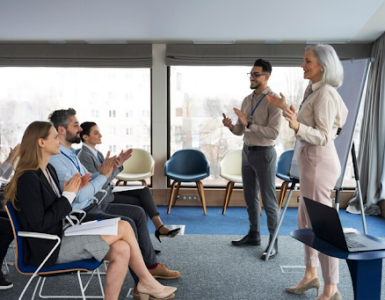As the events industry grows and more competition springs up both online and offline, event planners and marketers must keep up with the latest trends in search engine optimization. SEO may seem very overwhelming and hard to understand but it’s a necessary evil in our digital world.
There are some very basic practices that every digital marketer should do to keep your website and ticketing landing page high on a search page. These include knowing the keywords that web visitors are using to find your site, ensuring your site is optimized with title tags, meta descriptions and unique content, and including backlinks whenever possible. WordStream offers a good SEO Basics overview for more information.
Aside from the basics, it’s important to keep up with the trends. SEO best practices change almost daily as Google and other search engines refine algorithms and add products. Here are three trends that we think will affect event marketers in the coming year.
Local SEO Search
Google Search is just not a simple search any longer. Google has rolled out several search engine products that offer more customized content to searchers and an opportunity for businesses to showcase their products. Google My Business is just such a product. An increasing number of Internet searchers are looking for businesses or events in their city. From 2013 to 2017, there were a 900% increase in “near me” searches. For example, a potential guest may search for “conference center near me” or “venues in CITY”. A box that highlights a local venue will appear at the top of the page with a list of events included as well as address, phone number, URL and reviews. A link to your event will take the searcher to your website. It’s a powerful marketing tool that offers searchers most of the information they need without having to click on too many sites and pages. To optimize local SEO, you will need to work with your venue partner to optimize their GMB site. Make sure you give them accurate information regarding your event including your strongest call to action messaging and a link to your ticket site.
Google Events Pack
There is a Google Search product that is specifically for events. The events pack is a search engine results page feature that displays events in a list. The events pack is triggered by any event based keywords. It could be a single keyword like “concerts” or “festivals” or more descriptive long-tail keyword phrases like “medical conferences in New York”. The events pack will show one to three results below top search ads but above organic search results. The results will default to the searcher’s location unless they searched for another location. When you click a result in the event pack you are sent to Google’s event search page which offers more events and more information on each event as well as links to ticketing pages.
The events pack offers an event marketer the chance to rank higher in Google Search, which is always the ultimate goal of any good marketing professional. An “above the fold” position on any search results means a higher click-through rate and better ticket sales. The current statistics are that ranking at the top can mean a 35% click-through-rate.
To rank in events pack, you must use SEO friendly keywords on your event website and ticketing landing page. Use descriptive keywords in your event name such as “Columbus Marketing Conference” or “Southern California Folk Festival”. Include all relevant information such as dates, times, venue address, phone number and ticket prices on multiple pages of your site and the ticketing site. Google crawls all relevant event sites so make sure that if you use other event listing or ticketing site, your event information is accurate there as well. Add as many backlinks as you can to your website so that they can be crawled by Google. These SEO practices are becoming more and more essential to standing out in a crowded event market. Don’t dismiss this trend.
Voice Search
It may be hard to believe, but Gartner recently reported that 30% of all Internet searches will be done without a screen in 2020. But when you hear that one in six Americans own a voice-activated smart speaker, it makes perfect sense. This is a wakeup call for all digital marketers. Humans do not search the web in the same way when using their voice.
Think about it. If you are searching for a music festival in Denver Colorado, you would type “festival Denver”. If you were using your Alexa, you may say “Alexa find me music festivals in Denver Colorado in April”. You may also phrase it in the form of a question.
Tone, phrasing, and the use of long-tail keywords makes Google Voice search the web for more conversational SEO on sites than actual keywords. The old way of keyword stuffing your site in order to rank is not the way any longer. Savvy marketers are adjusting their website copy to reflect a more conversational and personal tone. This change to your event site will not only help your site rank better in voice search but also make your brand feel more approachable and human.
SEO is important for every digital marketer, website owner and event of any size. Without it, your guests will never find your site online. The more time you take to learn how to make SEO work for you, the better your site will rank and the more traffic you’ll see. Don’t ignore it.







